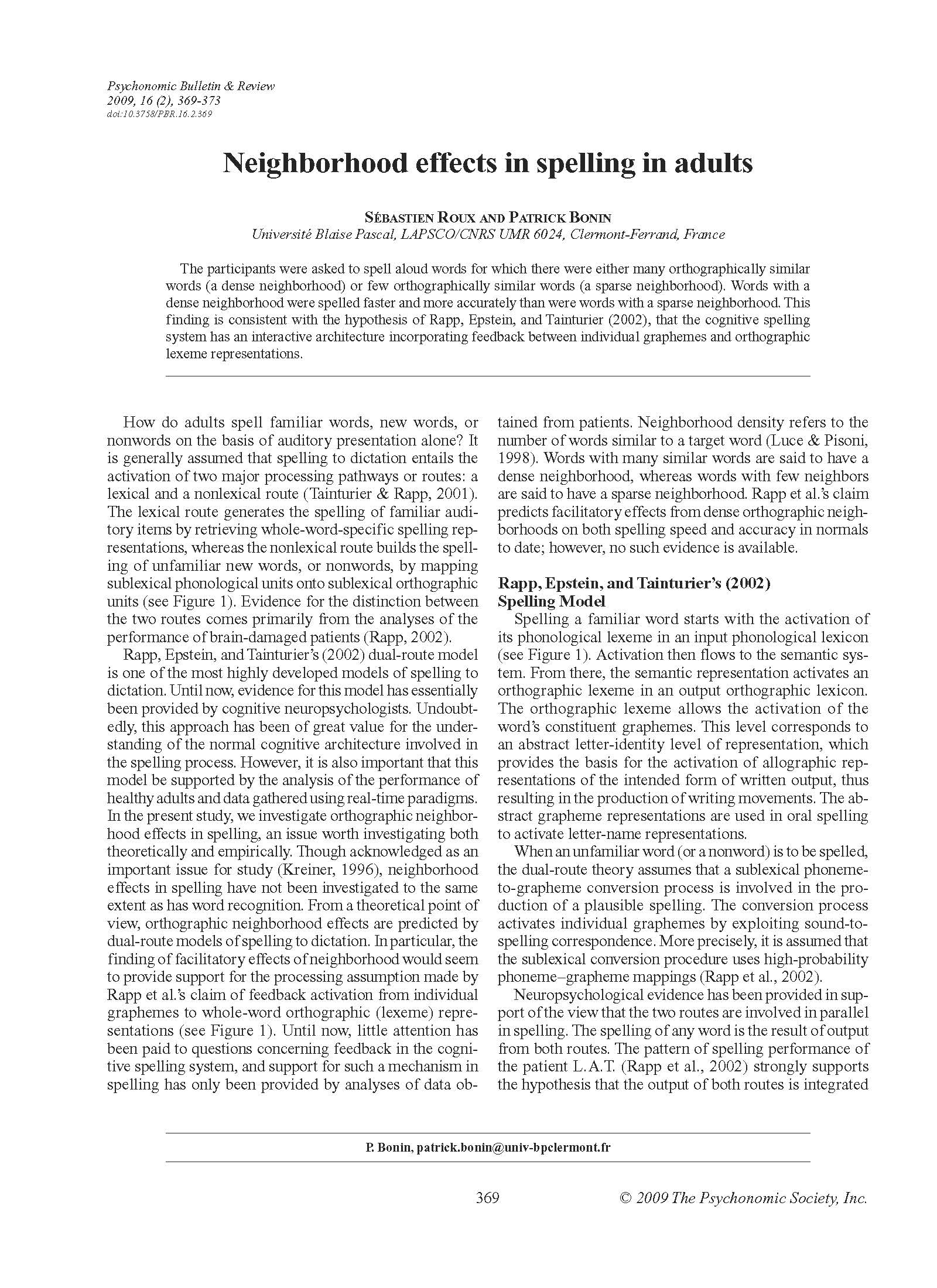The participants were asked to spell aloud words for which there were either many orthographically similar words (a dense neighborhood) or few orthographically similar words (a sparse neighborhood). Words with a dense neighborhood were spelled faster and more accurately than were words with a sparse neighborhood. This finding is consistent with the hypothesis of Rapp, Epstein, and Tainturier (2002), that the cognitive spelling system has an interactive architecture incorporating feedback between individual graphemes and orthographic lexeme representations.
Neighborhood effects in spelling in adults
